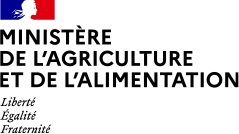Document type: article from the website of the French Ministry of Agriculture and Food
Preview (translated): Sterilisation is a tool to fight and prevent the abandonment of animals and threats to their welfare. Cats are a domesticated animals: they cannot be left to fend for themselves without risking their health and the community.
In 4 years, a pair of cats can give birth to more than 20,000 kittens.
Too often, an unwanted litter leads to the abandonment of the cat and/or kittens, which may die for lack of care or food or may grow up in poor conditions. Every year, shelters take in thousands of kittens which they try to save and find adoptive homes for. Spaying or neutering your cat helps to break this cycle of animal abandonment.
What are the advantages of sterilisation?
Studies have shown that sterilisation carried out when kittens are as young as 8 weeks old has no more side effects than when they are 6 months old. Sterilisation protects the owner from the "surprise litter" effect, which is too frequently a cause for abandonment.
For females, lack of sterilisation correlates with a high risk of mammary tumors, usually resulting in the death of the animal.
In addition, sterilisation leads to :
- a better relationship between the cat and its family: an unneutered cat quickly develops behaviours that are unpleasant for its owner and family, not least urinary marking and loud meowing;
- a decrease in cats hunting: small wild animals are better protected. An unneutered cat tends to range further from its owner's home, it hunts more and is therefore at greater risk of an accident. It can also become a carrier of or vector for diseases, some of which are transmissible to humans;
- a consequent decrease in the number of abandoned animals.






